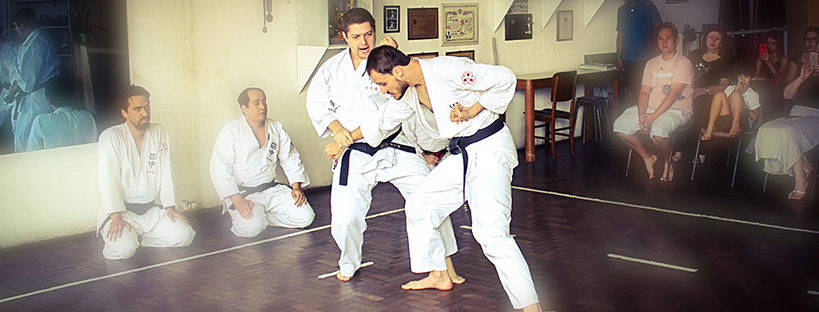It is not uncommon to see people, or even karateka themselves, saying that Karate is not for self-defense or that training kata is useless. I have even seen relatively famous practitioners saying that if a person wants to learn self-defense he should practice Jiu-Jitsu. This opinion shows a great ignorance regarding our art and its history. How is Karate not efficient as a self-defense if it was created just for that?
There are many practitioners who have years in Karate, but do not see the complete art. They only know a part of this art, taught in a context of physical and competitive education, but they think that’s all. Karate trained to earn points or trained with a more “zen” purpose should not be considered self-defense. There are several possible approaches to Karate and all of them have their value, but you have to train with awareness to practice correctly and not to pass on primary mistakes.
The first step in correcting these mistakes is to listen to what the masters of the past have said about what Karate is. Itosu, Funakoshi, Mabuni, Motobu, Miyagi, Chomo and many others. The real traditional Karate is to know this past to shape the future. It is to know the historical context so as not to fall into baseless guesses.
The second step is to study Karate in a rational and critical way. Each kata carries strategies and applications that go well beyond punches and kicks, being very efficient for what they are proposed. Exploring the practical bunkai, not that theatrical or improbable, is indispensable to know the richness and depth of karate.
The third step is to work on a change of mentality: you have to understand that no matter what grade you are in or how many years in Karate you have, the path of learning does not end. That Karate is much wider than the walls of our dojo. That our sensei do not have all the answers. That what they have taught you is not an unquestionable truth. That the path of Karate – and learning – must be tread with humility, dialogue and constant questioning so that it is a journey that will take you further, not walking in circles.
